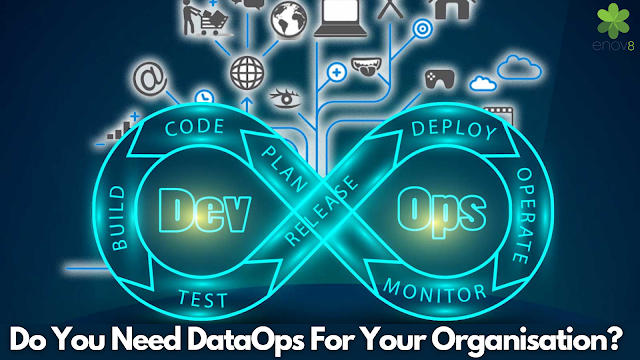From Code to Insights: Exploring the Synergy Between DevOps and DataOps
In the realm of modern technology, where the ability to leverage data and deliver efficient software solutions is paramount, two distinct but interrelated methodologies have emerged: DevOps and DataOps.
While both approaches aim to streamline processes and enhance collaboration within organizations, they address different aspects of the software development and data management lifecycle.
In this blog post, we'll explore the intricacies of DevOps and DataOps platforms, unravelling their similarities, differences, and the value they bring to today's digital landscape.
DevOps Platform: Bridging the Gap between Development and Operations
DevOps, a portmanteau of "development" and "operations," is a philosophy that advocates for close collaboration and integration between application development and IT operations teams.
It focuses on breaking down silos, fostering communication, and automating processes to deliver software faster, more reliably, and with fewer errors.
DevOps brings together cultural, organizational, and technical practices to enable seamless collaboration throughout the entire software development lifecycle.
At its core, DevOps services and solutions promote the idea of "continuous everything."
Continuous integration (CI) ensures that code changes are integrated and tested regularly, allowing developers to catch issues early.
Continuous delivery (CD) extends CI by automating the deployment process, enabling teams to rapidly and reliably deliver software updates to production environments.
Continuous monitoring and feedback loops provide real-time insights, enabling teams to make data-driven decisions and respond promptly to issues.
By fostering cross-functional teams, DevOps facilitates knowledge sharing, reduces bottlenecks, and promotes collective ownership of software quality.
The use of automation tools, such as configuration management systems and infrastructure-as-code (IaC) frameworks, further accelerates the delivery process and ensures consistent environments across development, testing, and production stages.
DataOps: Revolutionizing Data Management and Analytics
DataOps, an offspring of DevOps, is a methodology that addresses the unique challenges associated with managing and analyzing data.
As companies increasingly depend on data to drive business decisions, DataOps emphasizes agility, collaboration, and automation to allow faster and more reliable data delivery.
By combining principles from Agile, DevOps, and data management practices, DataOps seeks to streamline the end-to-end data lifecycle.
Traditionally, data management was characterized by siloed operations, lengthy development cycles, and a lack of communication between data engineers, data scientists, and other stakeholders.
DataOps aims to break these barriers by introducing collaborative workflows, standardized tools, and automated processes.
It promotes the use of version control for data artifacts, allowing teams to track changes, improve reproducibility, and ensure data quality.
One of the key tenets of DataOps is the concept of "data pipeline as code." Similar to infrastructure-as-code in DevOps, this approach treats data pipelines as programmable entities, enabling teams to define, version, and automate data workflows.
DataOps also encourages the use of data catalogues and metadata management tools, which provide a central repository for discovering, understanding, and governing data assets.
By adopting the DataOps platform, organizations can achieve faster time-to-insights, reduce data-related errors, and improve collaboration between data teams and business stakeholders.
Wrapping Up
DevOps and DataOps represent two sides of the same coin, addressing distinct but interconnected challenges in the software development and data management domains.
While DevOps aims to streamline the development and deployment of software applications, DataOps focuses on optimizing data management, analytics, and insights delivery.
Embracing DevOps services and solutions and DataOps can unlock new possibilities, enabling organizations to achieve a harmonious blend of efficient software delivery/ software release management and data-driven decision-making.




Comments
Post a Comment